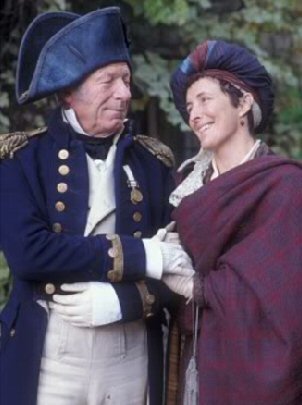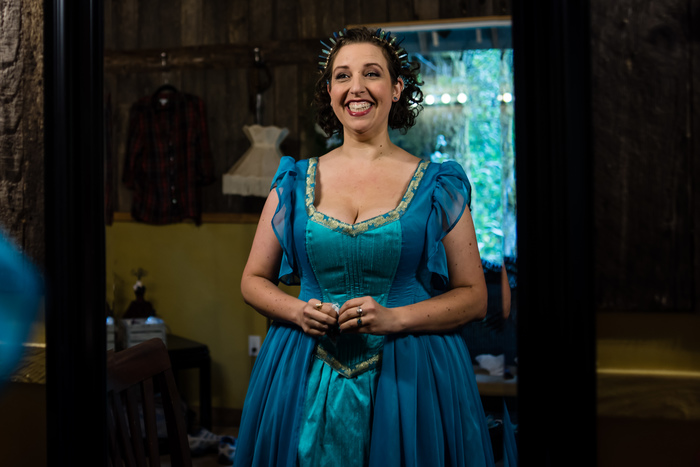Jane Austen's Persuasion, published after her death in 1817, is one of the most beloved and relatable of her stories. How is it that a novel over 200 years old still resonates with modern readers?
10. Love of the Navy, love of the sea.
Some of the most impactful moments in the novel happen at or near the seaside, and most of the tale has at least a passing mention to the admirable fraternity of the British Royal Navy. It's hard not to be charmed by the whimsical good nature of both.
9. The Crofts.
I mean, we all know they're the best couple in all of Austen's works, right? Amiable, resilient, good-natured, generous, and adventuresome, my goal in life is to be Mrs. Croft.
8. The nurse & widow gossip network.
Contrasting Anne's younger sister, who complains of ailments in order to get attention and to get out of parenting her young hellions, Mrs. Smith is Anne's childhood friend who is widowed, impoverished by her late husband, and crippled with her bad health- but retains a sunny and competent disposition.
Her fortitude and geniality enable her to become fast friends with Nurse Rooke, who is canny enough to pick up on the latest gossip from the patients she attends in both poor and wealthy homes.
Given the pitiable position impoverished women had in the Georgian and Regency eras (being unable to financially independent), the idea of a network of nurse and widow spies and gossips, working for the fundamental good of decent people, is so charming I want it to be a BBC special.
7. Realistic characters.
Austen is well-loved for her enduring portrayal of personalities many of us have encountered, but Persuasion has a particularly large cast. The whiny, self-centered faux-invalid, the suffering husband, the indulgent but disapproving grandparents, the risk-taking giggly teen girls, the snobby man of mediocre means, the adventure couple, the social climber with a great face, the poet who can't stop suffering about the One That Got Away, and so on.
You feel immersed in the world, because you can relate to knowing these archetypes.
6. Galloping romance.
Although the start of Persuasion is slow and very measured, the pace noticeably picks up after Captain Wentworth arrives in Bath (where Anne is). As things heat up between our main characters, so, too, does the pace and action increase.
The overall result is feeling, as a reader, slightly breathless with the shift- just as Anne herself feels, with the sudden revelation of Captain Wentworth's feelings, and the hope for them as a couple.
5. Normalizing imperfection.
Anne once took some (sensible) advice from the maternal figure in her life, and it cost her dearly. However, she accepts the consequence without assigning blame, and moves on with her life by focusing on being the best version of herself she can be.
She doesn't repress her emotions or shift the blame in order to lessen the sting of regret. She neither ignores her Big Mistake nor makes it the central theme of her life- it's just a Thing That Happened Once.
Honestly, that's #LifeGoals.
4. Second chances.
There are two parallel second chances in Persuasion: Anne's, with Captain Wentworth; and William Elliot, with the Elliot family of Kellynch Hall.
In Anne and Captain Wentworth's case, affections were repressed but remain unchanged, and all obstructions are lifted when they both acknowledge that.
In William Elliot's case, he seeks to re-establish connection for material gain- all true feelings are cast aside.
So in the end, second chances based on true emotion and loyalty to one's heart win the day. And who doesn't want that for ourselves?
3. Captain Wentworth is a fallible hero.
Successful in his career but not spoiled from indulgence or wealth, Wentworth is repeatedly shown to be a good friend and compassionate person.
He does 'cut' Anne a few times, but later admits to himself and to her how childish his behavior was and that it was in part motivated by jealousy and his wounded pride. And he isn't afraid to be vulnerable to her a second time.
A strong, sympathetic romantic hero that has (and admits to) realistic flaws of ego? Be still my heart.
2. Anne Elliot is a mature heroine.
Although she's considered middle aged (at 27), and references are made to her having lost the bloom of youth, Anne doesn't yearn for younger days not is she envious of her younger family members and friends.
She's the overlooked middle child, and it makes her a fantastic judge of character. She's quiet, observant, smart, and knows her own mind. She doesn't need to roll her eyes at her older sister's snubs- she knows that the best revenge is to enjoy her own life.
In short, her charms don't come from naivety or innocence, but from living a full life.
1. The Letter.
Jane Austen has written some lovely passionate phrases about romance, but chief among them is Captain Wentworth's ardent, desperate plea after overhearing his friend and Anne debate whether men or women love the longest and most fiercely.
You just have to read the scene yourself. But be warned: it may make your future love letters pale in comparison.
 |
| Click here to return to the master list of Austen in August posts! |












Ah, Beth, you made my Monday summoning up so many wonderful things about my favoritest of Austen novels.
ReplyDeleteYay! To be totally honest, I read Persuasion this year, for the *first* time ever. And I didn't expect to like it- but how can you not fall in love with all the genius of it? :)
DeletePersuasion is my all time favorite book! The "second chances" theme is one that crosses all situations and eras. So many times in our lives we want a chance to go back and make a different choice.
ReplyDeleteYes! Absolutely that! And to have Austen show us a worthy heroine (and hero) who get that chance is such a lovely, hope-filled thing to read.
DeleteI love Persuasion so much so I'm so happy to see you showcase it. It is my favorite Austen work and the older I get the more I relate to it. I love #6 especially. I feel exactly like that when I read the book.
ReplyDeletesuch a important information, i like your writing skills and everything about this blog just caught my attention.
ReplyDeletePersuasion is my favorite JA novel and you captured what makes it great beautifully particularly in regards to Anne and Wentworth. That they are willing to admit to their flaws and accept blame is what makes them two of my favorite characters and I love that they are given a second chance at love.
ReplyDeleteThat letter! It's absolute perfection.
ReplyDeleteThank you for these.... but most of all the letter..Not sure if there's any lady/woman who would not be captivated by such words :)
ReplyDelete